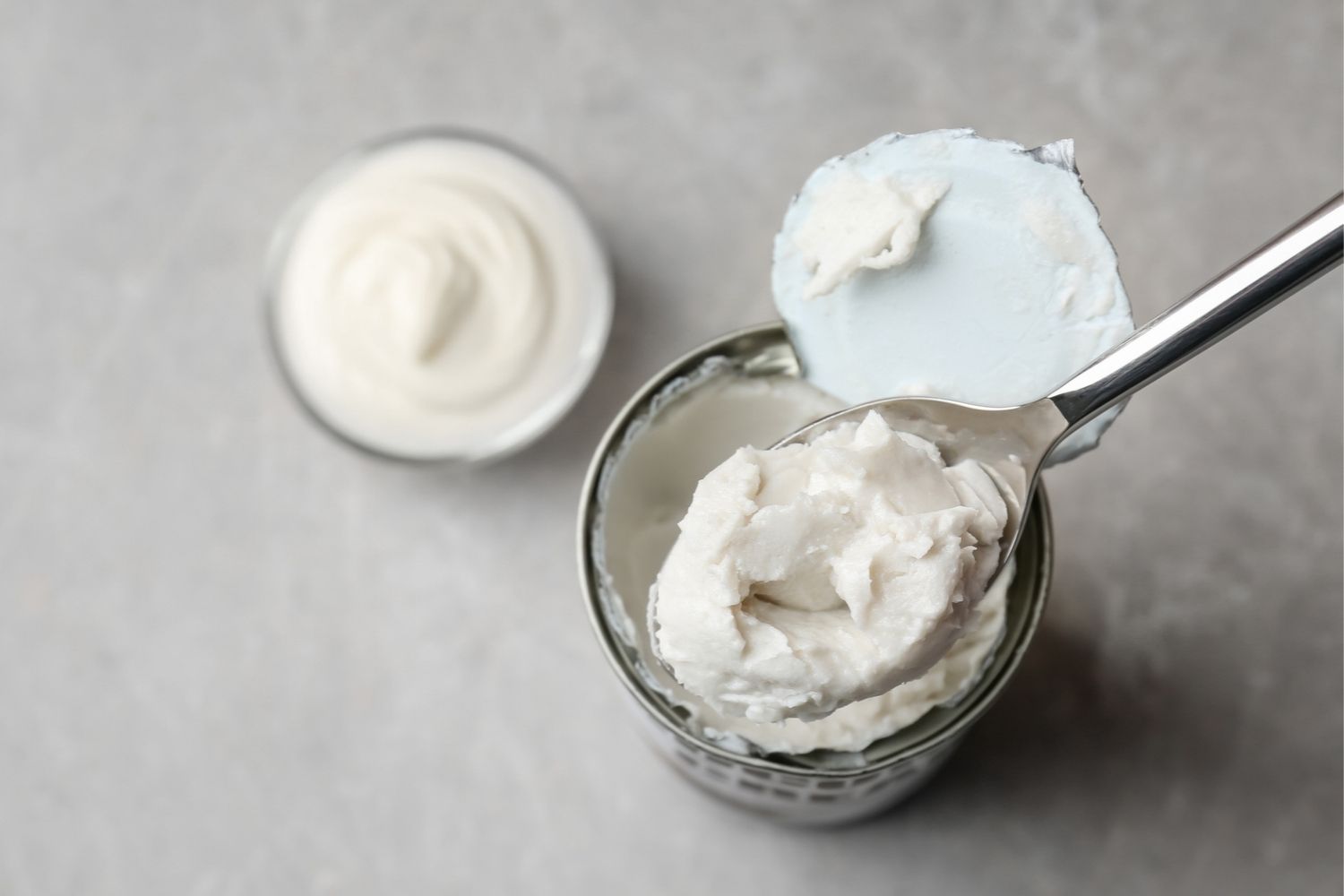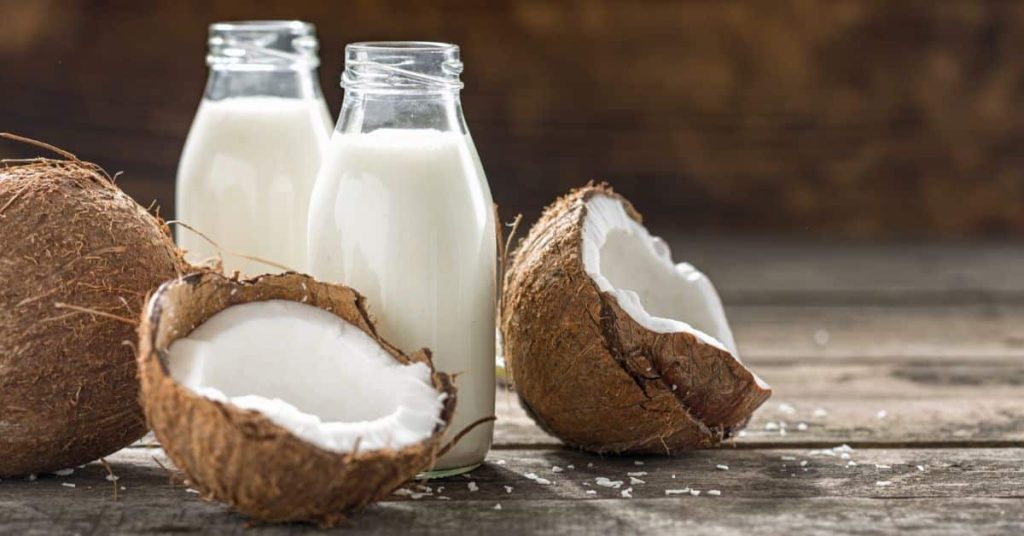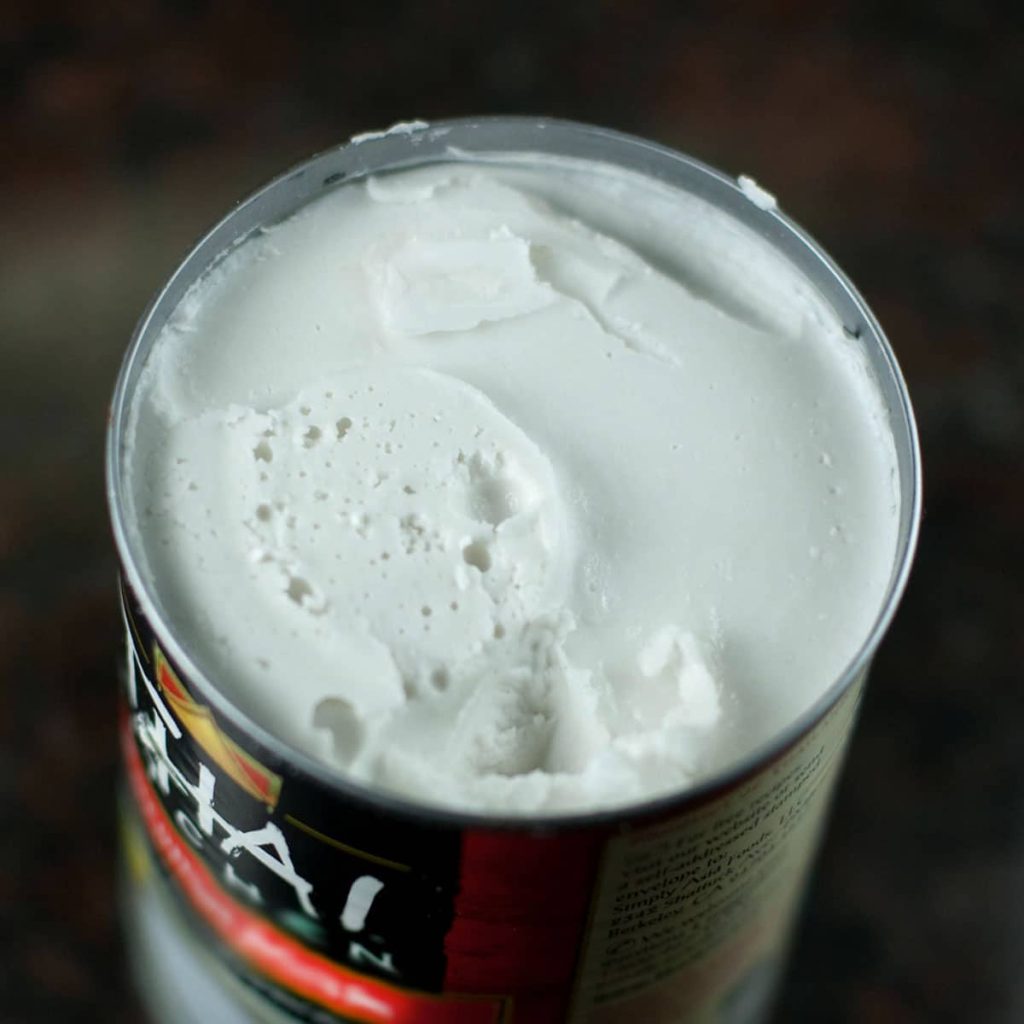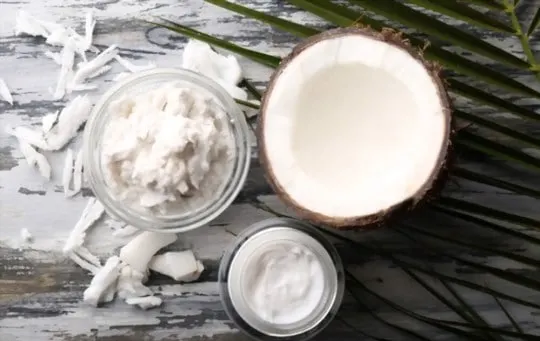Can I Freeze Coconut Milk and Cream?

In everyday life, milk is a necessary component. There are various alternatives to conventional milk made from almonds, rice, soy, pecans, or coconut milk if you are vegan, lactose intolerant, or don’t want to use it. We’ll learn more about coconut cream and milk in this essay.
Coconut cream, coconut milk, and light coconut milk are the three types of available coconut milk. Coconut milk is created by mixing the white flesh of the coconut, soaking it in hot water, and then straining the liquid through a cheesecloth.
Sweet, nutty water is found inside young coconuts, high in potassium (more than bananas) and low in carbs and sodium, making it a fantastic hydrating drink. Coconut water differs from coconut milk and cream.
Coconut cream is thicker than coconut milk because it contains more fat. It’s created in the same manner as coconut milk, but with less water (1 part water to 4 parts shredded coconut) to make it thicker and more flavorful.
The consistency you want in your meal will determine which one you use. Let’s go through coconut milk and cream in more detail now.
When coconut milk is frozen, what happens?
Coconut milk should be frozen if only there is any leftover, not unopened packets because it has a longer shelf life while unopened.
Keep in mind that if you freeze coconut milk for later use, the proteins and fat will separate from the liquid. It’s also possible that the flavor and texture will alter.
Taking the coconut milk out of the freezer the night before is the best option for defrosting it. If you need it right away, thaw it in a microwave-safe container in tepid water and stir occasionally.
To make the structure even after defrosting, blend or stir it. The texture and flavor may change as a result. However, it can be used in baking, cooking, and smoothies.
What is the shelf life of frozen coconut milk?

Once opened, canned coconut milk can be refrigerated for 4-6 days. If you aren’t planning on using it during this time, you should put it in the freezer. Coconut milk that has been frozen can last up to 30 days in the refrigerator. However, consuming it as soon as possible is preferable because the quality will deteriorate if stored for an extended period.
What should you do with leftover coconut milk?
Leftover coconut milk can be stored in ice cube trays or freezer-safe containers in the fridge. You can create tiny portions if you don’t want to use all of the leftovers in one meal.
Since milk expands when frozen, the containers should not be completely packed. Place the containers in the freezer after sealing them and labeling them with the date.
Another option is to pour the coconut milk into trays and freeze them. Transfer the milk cubes to freezer bags or containers to reuse the trays. In this manner, you can use as many cubes as the recipe calls for.
Is it possible to freeze a carton of coconut milk?
To begin, look at the expiration date. You can put it on hold if it hasn’t passed yet. Keep in mind, however, that milk expands when frozen. If you use coconut milk from a carton, it may rupture in your freezer. As a result, it’s best to store it in a freezer-safe container.
What happens if coconut cream is frozen?

Coconut cream is thicker and has a higher fat content than coconut milk. It was used to impart a creamy coconut flavor to soups, stews, and marinades. It’s also a fantastic dessert ingredient.
Coconut cream can be frozen in the same way that coconut milk can. Its texture may shift slightly. But it’s preferable to throw it away.
How do you keep coconut cream fresh?
If you don’t use the entire packet, you can keep the coconut cream in the fridge for up to 7 days. It’s best to freeze it if you want to make it last longer.
If the can or carton has been opened, it’s not a good idea to keep it there. Use airtight containers, plastic freezer bags, or ice cube trays to freeze your ice cubes. Mix the cream when you want to use it to create a smooth, even texture.
Always use freezer-safe containers if you wish to freeze the coconut cream. Allow for expansion when the cream is frozen. It will last for up to 6 months in the freezer.
It’s important to remember that defrosting, stirring, or blending frozen coconut cream takes at least 24 hours. That’s it, and you’ve got your coconut cream for your recipe.
Frozen Coconut Cream: how do you thaw it?

There are a few ways to defrost frozen coconut cream. You have two options for thawing it: in the refrigerator or at room temperature. Alternatively, you can heat it in the microwave or a bowl of lukewarm water if you’re cooking straight in the pan.
The most crucial aspect of thawing is to do it slowly in the refrigerator overnight. However, if you want to save time, place the container in a bowl of tepid water or microwave it. Examine the container to see if it can be used in the microwave.
Regardless of which method you use, you’ll need to combine or stir the cream until it’s smooth.
Lastly,
Coconut cream and coconut milk are both made from the same coconut fruit. Both are produced with shredded coconut meat and water, but the proportions are different. Coconut milk and coconut cream can be substituted for one another. If you have coconut milk but want to make coconut cream, freeze the coconut milk and scrape the cream off the top with a spoon to use in your recipe.
Are you looking for a way to manufacture coconut milk from coconut cream? It’s a piece of cake. Stir together two tablespoons of coconut cream with 34 cups of water to make one cup of coconut milk. Coconut milk and coconut cream come in a variety of brands. All you have to do now is pick your favorite.











